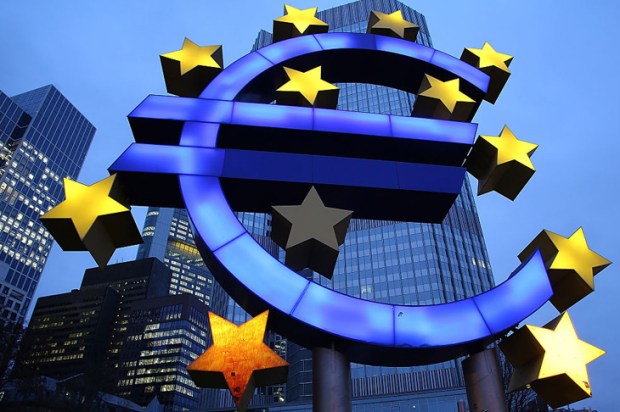Britain’s three main political parties are in crisis. That isn’t meant to happen. If only by a process of elimination, one of the three UK-wide political parties should be doing well at any given moment. These simultaneous crises are one of the things that is making politics so volatile.
Let’s start with the Liberal Democrats. The political circumstances seem almost perfect for them but their failure to even break into the teens in the polls when the two main parties are both in crisis does makes one question whether they can ever return to the levels of popularity they enjoyed before the ill-fated coalition with the Conservatives.
What compounds their failure to break through is that both Labour and the Tories are being accused by their own MPs of abandoning the liberal centre. This alone should create the ideal conditions for a Lib Dem revival. Add to that Brexit. The Liberal Democrats are the only one of three major parties in favour of a second referendum — a position that a plurality of voters now support. But the Liberal Democrats are getting little benefit. They haven’t become the Ukip of the 48 per cent.
In these circumstances, questions are being asked of the party leader, Vince Cable. He didn’t help himself recently by missing a key Brexit vote in parliament. (Ironically, it is reported that he missed the vote because he was discussing whether a new anti-Brexit party should be formed.)
Cable is not a Brexit fanatic. When he was out of parliament, he was opposed to the idea of a second referendum, so he isn’t an ideal tribune of Remain ultras. But it is hard to imagine any of the other 11 Liberal Democrat MPs doing a better job than him as leader.
The willingness of senior Liberal Democrats to indulge talk of a new centrist party, into which — presumably — the Liberal Democrats would fold themselves, is a recognition of the party’s failure. If they aren’t convinced that they can be the centrist party that they think Britain needs, why should voters be?
For the Tories, the crisis is, as ever, over Europe. Far from resolving the party’s split over Britain’s relationship with the EU, the Brexit vote has paved the way for perhaps the bloodiest Tory civil war yet.
Theresa May’s Chequers plan has, to put it mildly, stretched party unity. She has already lost two of her most senior cabinet ministers over it. If she gives any more ground, she’ll face more resignations — and calls for her resignation.
The best news that the Prime Minister has had since Chequers is that she’ll be able to make the case for her plan in person to the leaders of the EU members states at Salzburg in September. No. 10 believes that they will be less doctrinaire than the Commission. But while the heads of government might be more understanding of May’s political predicament, they still won’t accept her Chequers plan. They’ll push for further concessions from her.
What May must decide over the summer is what she’ll do in response. The remaining Brexiteers in her cabinet take the view that Chequers mustn’t just be seen as an opening offer. They fear that if it is, Britain will be forced into becoming essentially a non-voting member of the EU. They take the view that if it becomes clear the EU27 won’t accept something pretty close to Chequers, then Mrs May must change tack.
In these circumstances, they would prefer her to push for a free-trade agreement along the lines that Canada signed with the EU. The challenge would be to make that compatible with what May signed up to on the Irish border in December, without doing significant damage to the constitutional framework of the UK. But if Mrs May makes more concessions before the EU has reciprocated, she’ll lose more ministers. Her position will become even more vulnerable.
Labour’s problems stem from Jeremy Corbyn’s foreign policy and the Corbynite world view more generally. If the party had a leader with a similar economic approach but without Corbyn’s personal baggage and peculiar approach to international relations, it would hold together relatively easily.
Take the anti-Semitism row. The Labour leadership’s refusal to simply adopt the International Holocaust Remembrance Association’s definition of anti-Semitism in its entirety is causing it political pain. But Corbyn’s refusal to give way on this issue isn’t about Labour’s programme for government. Rather, it is because crude criticism of Israel is central to his thinking.
Corbyn believes that the West is responsible for most of the world’s ills. So in his world view, Israel — that outpost of western values — must be responsible for the Middle East’s troubles. Corbyn’s most fervent supporters in today’s Labour party share that sense. If Labour did accept the IHRA definition in its entirety, a significant number of them would be investigated for anti-Semitism.
This row could be the trigger for a sizeable number of Labour MPs to break away from the party. Many of them struggle with the leadership’s stance. Worse, the party seems intent on taking action against MPs, such as Margaret Hodge and Ian Austin, who have taken the leadership to task for its approach to this issue. If either of these MPs — both of whom lost relatives in the Holocaust — are disciplined in any way, it would surely become morally impossible for many of their colleagues to carry on taking the Labour whip.
The fact that Corbyn could well become prime minister raises the stakes, as it did with the anger over his handling of the Salisbury nerve agent attack. At the last election, Labour MPs could say that they were fighting to hold their own seats, not to make Corbyn prime minister. But that distinction will be impossible to maintain at the next election, as the campaign will start with the Labour leader within touching distance of power.
Some will say that the upshot of all this is that a new party must be formed. But so far, there has been far more talk than action on this front. It is also not clear what this new party would actually stand for and how it would hope to become a serious national force under first-past-the-post.
The crises in Britain’s political parties is making our politics ever more volatile. The next four years will be even less predictable than the last two.
Got something to add? Join the discussion and comment below.
Get 10 issues for just $10
Subscribe to The Spectator Australia today for the next 10 magazine issues, plus full online access, for just $10.
You might disagree with half of it, but you’ll enjoy reading all of it. Try your first month for free, then just $2 a week for the remainder of your first year.















Comments
Don't miss out
Join the conversation with other Spectator Australia readers. Subscribe to leave a comment.
SUBSCRIBEAlready a subscriber? Log in